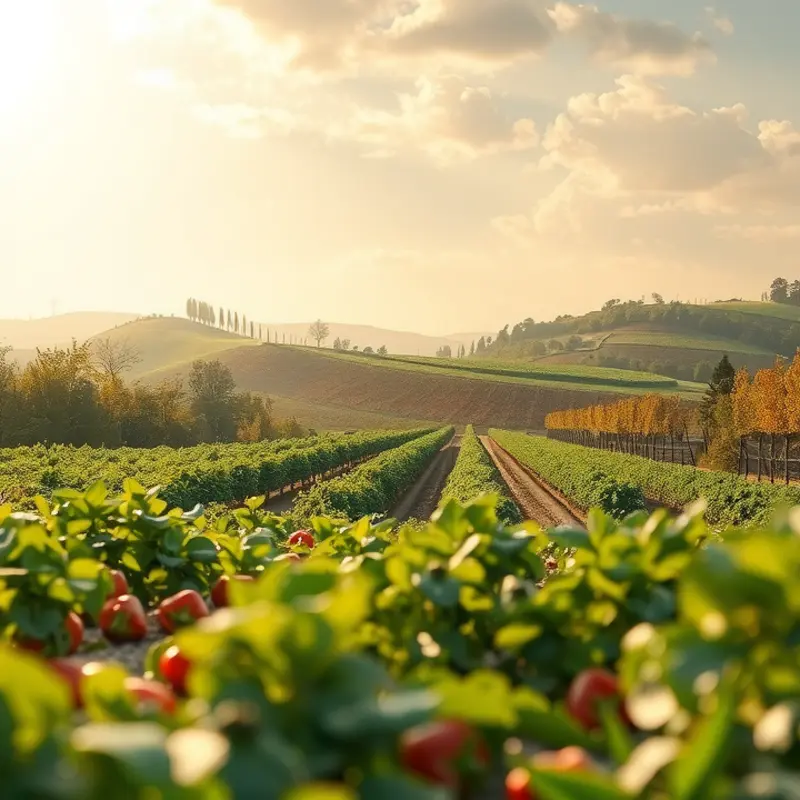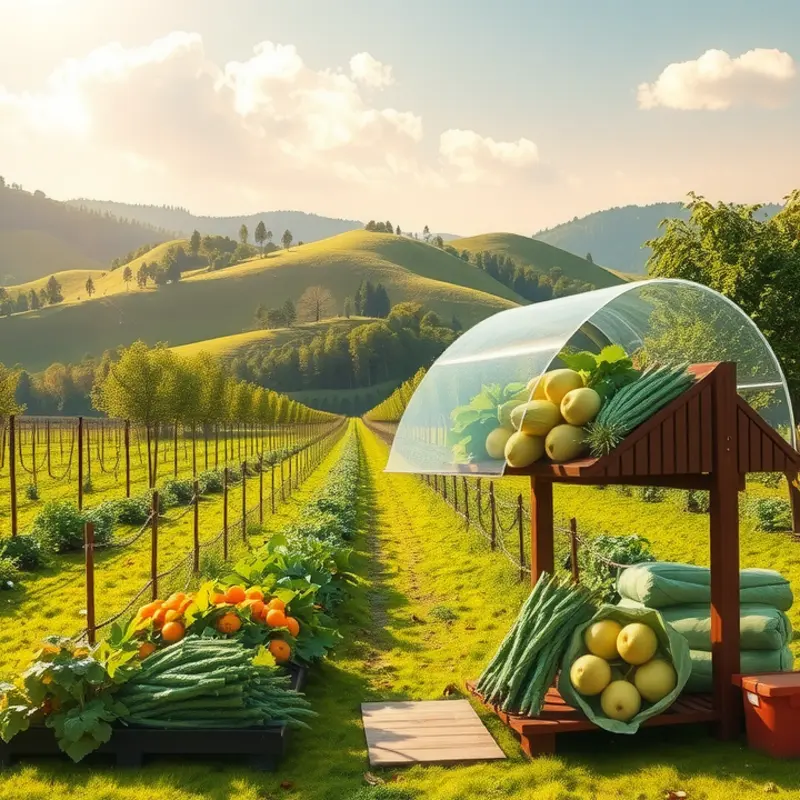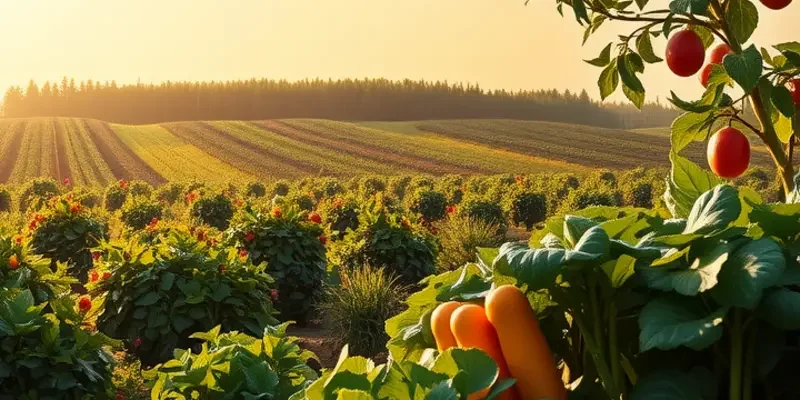Choosing ethically sourced tea and coffee is a simple yet impactful way to support sustainability. These beloved beverages have the potential to uplift communities, protect ecosystems, and foster environmental responsibility. By understanding the significance of ethical sourcing, you can make informed choices that not only satisfy your cravings but also contribute positively to the planet. Explore the journey of your morning cup and learn how to enjoy your favorite brews while keeping the Earth in mind.
The Impact of Your Brew: Understanding Ethical Sourcing

The ritual of brewing tea and coffee connects us to a chain that stretches across the globe, encompassing the farmers who nurture the plants, the soil in which they grow, and the communities built around them. By embracing ethical sourcing, you can ensure that your morning cup contributes positively to both people and the environment.
Fair trade is one of the pillars of ethical sourcing. At its core, fair trade ensures farmers receive a fair price for their products. This helps communities invest in education, health care, and sustainable practices. Importantly, it also offers a more direct path to market, cutting down exploitation by intermediaries.
Ethical sourcing also sharply focuses on the environmental effects of agriculture. Coffee and tea cultivation often leads to deforestation, soil erosion, and a loss of biodiversity. However, when farms commit to organic practices, they prioritize preserving their natural ecosystems. Organic certifications assure consumers that no synthetic fertilizers or pesticides are used, promoting a healthier planet.
Incorporating shade-grown methods in coffee farming is another beneficial strategy. This traditional technique involves growing coffee under the canopy of native trees, preserving biodiversity and providing a habitat for wildlife. Moreover, shade-grown coffee requires fewer chemical inputs, making it both an environmentally sound and a socially responsible choice.
Efforts such as these fall under the broader category of agroforestry practices. Agroforestry blends agriculture and forestry to create more sustainable land use. It promotes healthier crop production and environmental preservation, reinforcing why such practices are essential.
Ethical sourcing in tea production can be equally impactful. Tea plantations practicing regenerative agriculture play a part in reversing climate change by rebuilding soil organic matter and restoring degraded soil biodiversity. This approach not only sequesters carbon but also enhances water retention and nutrient availability.
While you’re sipping your ethically sourced brew, consider eco-smart kitchen storage methods to further reduce your environmental impact. Every effort counts toward creating a greener planet.
Certification labels can guide you when choosing ethically sourced products. Labels like Fair Trade, Organic, and Rainforest Alliance inform you that your purchase supports sustainable practices. Look for these certifications, but also research the companies to ensure their practices align with environmentally-friendly ideals.
By consciously choosing to support ethical sourcing, you empower not just yourself but entire communities and ecosystems. The impacts of these choices ripple outward, fostering a mutually beneficial cycle of sustainability and resilience. Each cup of tea or coffee, thus, becomes a vote towards a healthier planet.
Making Conscious Choices: How to Select Sustainable Coffee and Tea

Selecting sustainably sourced coffee and tea can make a substantial impact on both environmental health and social equity. To navigate these choices effectively, it’s important to understand the various labels and certifications that indicate ethical practices.
Certifications to Look For
The presence of reputable certifications on packaging often signals adherence to sustainable practices. Fair Trade certification assures that the farmers and workers have received fair compensation and work under humane conditions. This certification also focuses on encouraging environmentally sustainable processes.
Organic certifications imply that tea and coffee are grown according to standards that encourage ecological balance, without synthetic fertilizers or pesticides. Organic farming methods replenish soil fertility and promote biodiversity.
The Rainforest Alliance certification, another key label, confirms that the product is sourced from farms following rigorous environmental, social, and economic guidelines designed to preserve biodiversity and enhance workers’ livelihoods.
A lesser-known but significant certification is UTZ, focusing on providing farmers with better farming methods and securing improved labor conditions. Combining this with quality benchmarking, UTZ supports the expansion of sustainable farming globally.
Decoding the Labels
Reading these labels effectively requires an understanding of what they represent. Each certification stands for a comprehensive set of criteria that farms and facilities must meet. Recognize that these certifications are part of third-party verification systems, giving them a basis in accountability and consistency. Choosing products with these labels typically means supporting practices that prioritize environmental health and equitable labor standards.
Brands with a Commitment
Several brands align their entire supply chain with sustainable practices, often setting their own high standards beyond standard certifications. While specific names aren’t mentioned here, it’s beneficial to research the reputation and practices of brands before purchase. Consider looking for brands that openly share their sourcing policies and progress in sustainability, thus aligning with your ethical consumption goals.
Initiatives and Innovations
Innovations in sustainable sourcing are making headwaves. For instance, some initiatives focus on reforestation to offset carbon emissions associated with shipping coffee and tea globally. Farmers are partnering with tech innovators to track and minimize their carbon footprint, offering a transparent growth-to-cup journey.
Embracing the zero-waste movement is another way companies are contributing. Using eco-friendly packaging and encouraging consumers to recycle or compost waste materials align with greener practices. Engaging with a community that values minimal waste can enhance your understanding and commitment in choosing sustainably, bridging the personal and global scales of eco-responsibility.
For more on how to integrate these principles into your kitchen and lifestyle, explore eco-smart kitchen storage, aiding in sustaining freshness while reducing waste.
By understanding and prioritizing these certifications and mindful initiatives, you play a crucial role in fostering a healthier planet. Your informed choices can drive a demand for higher transparency and sustainability in the market, encouraging more brands to adopt ethical practices.
Final words
Embracing ethical sourcing of tea and coffee is more than a personal choice; it’s a commitment to a sustainable future. By opting for brands that prioritize environmental health and social welfare, you become an advocate for meaningful change. Your purchasing decisions echo far beyond your own kitchen, affecting farmers, ecosystems, and communities around the world. Every sip you take supports sustainable practices that nurture our planet. Together, as consumers, we can create a ripple effect that encourages more companies to adopt ethical practices and ultimately leads to a healthier planet for future generations. Sip with purpose and make every cup count!








